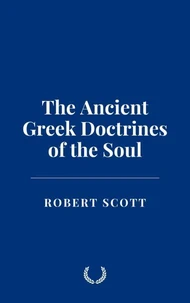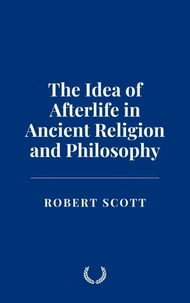Aesop's Fables and the Morality of Ancient Greece
Par :Formats :
Disponible dans votre compte client Decitre ou Furet du Nord dès validation de votre commande. Le format ePub est :
- Compatible avec une lecture sur My Vivlio (smartphone, tablette, ordinateur)
- Compatible avec une lecture sur liseuses Vivlio
- Pour les liseuses autres que Vivlio, vous devez utiliser le logiciel Adobe Digital Edition. Non compatible avec la lecture sur les liseuses Kindle, Remarkable et Sony
 , qui est-ce ?
, qui est-ce ?Notre partenaire de plateforme de lecture numérique où vous retrouverez l'ensemble de vos ebooks gratuitement
Pour en savoir plus sur nos ebooks, consultez notre aide en ligne ici
- FormatePub
- ISBN8230659419
- EAN9798230659419
- Date de parution07/02/2025
- Protection num.pas de protection
- Infos supplémentairesepub
- ÉditeurIndependently Published
Résumé
This book provides a comprehensive exploration of Aesop's fables, examining their historical context, philosophical implications, and enduring influence on Western thought. Drawing from ancient Greek, Roman, and medieval sources, it traces the development of Aesopian fables as both moral instruction and political allegory, revealing how these simple animal tales encapsulate complex ethical questions and critiques of power, justice, and human nature.
The book delves into the cultural, social, and political dynamics of ancient Greece, highlighting how Aesop's work reflects and engages with the values of the polis, especially in relation to the institution of slavery, the responsibilities of citizenship, and the role of leadership. As it explores how these fables shaped ancient and medieval educational systems, the work also reveals their influence on later philosophers, writers, and thinkers, from Plato and Aristotle to Jean de La Fontaine and George Orwell.
Ultimately, this book argues that Aesop's fables transcend their ancient origins, offering timeless lessons on virtue, equality, and the complexities of human behavior that continue to resonate in modern discussions of ethics, politics, and social justice.
The book delves into the cultural, social, and political dynamics of ancient Greece, highlighting how Aesop's work reflects and engages with the values of the polis, especially in relation to the institution of slavery, the responsibilities of citizenship, and the role of leadership. As it explores how these fables shaped ancient and medieval educational systems, the work also reveals their influence on later philosophers, writers, and thinkers, from Plato and Aristotle to Jean de La Fontaine and George Orwell.
Ultimately, this book argues that Aesop's fables transcend their ancient origins, offering timeless lessons on virtue, equality, and the complexities of human behavior that continue to resonate in modern discussions of ethics, politics, and social justice.
This book provides a comprehensive exploration of Aesop's fables, examining their historical context, philosophical implications, and enduring influence on Western thought. Drawing from ancient Greek, Roman, and medieval sources, it traces the development of Aesopian fables as both moral instruction and political allegory, revealing how these simple animal tales encapsulate complex ethical questions and critiques of power, justice, and human nature.
The book delves into the cultural, social, and political dynamics of ancient Greece, highlighting how Aesop's work reflects and engages with the values of the polis, especially in relation to the institution of slavery, the responsibilities of citizenship, and the role of leadership. As it explores how these fables shaped ancient and medieval educational systems, the work also reveals their influence on later philosophers, writers, and thinkers, from Plato and Aristotle to Jean de La Fontaine and George Orwell.
Ultimately, this book argues that Aesop's fables transcend their ancient origins, offering timeless lessons on virtue, equality, and the complexities of human behavior that continue to resonate in modern discussions of ethics, politics, and social justice.
The book delves into the cultural, social, and political dynamics of ancient Greece, highlighting how Aesop's work reflects and engages with the values of the polis, especially in relation to the institution of slavery, the responsibilities of citizenship, and the role of leadership. As it explores how these fables shaped ancient and medieval educational systems, the work also reveals their influence on later philosophers, writers, and thinkers, from Plato and Aristotle to Jean de La Fontaine and George Orwell.
Ultimately, this book argues that Aesop's fables transcend their ancient origins, offering timeless lessons on virtue, equality, and the complexities of human behavior that continue to resonate in modern discussions of ethics, politics, and social justice.






















